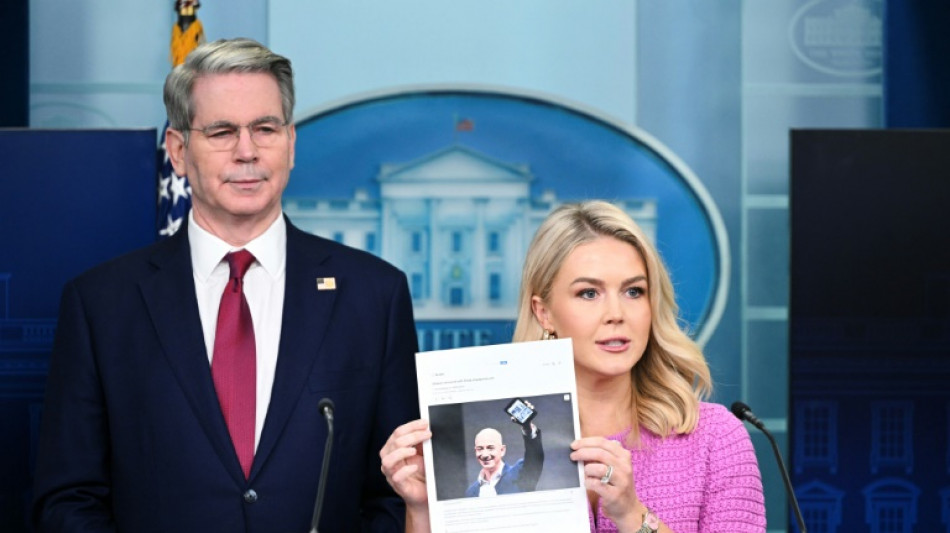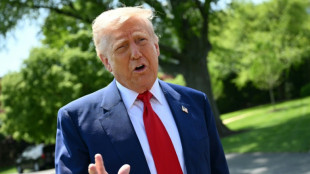
Amazon says never planned to show tariff costs, after White House backlash

Retail giant Amazon insisted Tuesday it had never approved a proposal -- slammed by the White House -- to show consumers how much US tariffs add to each price tag.
"The team that runs our ultra low cost Amazon Haul store considered the idea of listing import charges on certain products. This was never approved and is not going to happen," said Amazon spokesperson Tim Doyle.
Earlier Tuesday, Punchbowl News reported that the e-commerce site would show "how much Trump's tariffs are adding to the price of each product," citing a person familiar with the matter.
According to CNN and the Wall Street Journal, citing several sources, Trump called Bezos to raise concerns after being told about the report.
White House Press Secretary Karoline Leavitt called the reported plan "a hostile and political act by Amazon."
"Why didn't Amazon do this when the Biden administration hiked inflation to the highest level in 40 years?" she added during a briefing in Washington.
Saying he would take Amazon's statement at "face value," top Trump advisor Stephen Miller, told Fox News that Amazon customers "complain all the time they can't see where products are coming from and where they're made."
"A lot of American consumers want to buy products from America," he added.
After taking office in January, Trump slapped a 10 percent baseline tariff on most countries, along with higher levies on dozens of countries -- only to then pause the elevated rates for 90 days to allow for trade talks.
The White House has also imposed steep duties on China, and additional sector-specific measures -- leading Beijing to impose its own retaliatory tariffs on US goods.
Trump's tariffs already starting to have an impact on businesses in the United States.
Package delivery giant UPS said Tuesday it plans to cut 20,000 positions worldwide in 2025 following a significant drop in business for Amazon, its largest customer.
UPS Chief Executive Carol Tome said the firm, which had around 490,000 employees at the end of 2024, was reacting to a "changing trade environment."
E.Dudek--GL

 London
London

 Manchester
Manchester
 Glasgow
Glasgow
 Dublin
Dublin
 Belfast
Belfast
 Washington
Washington
 Denver
Denver
 Atlanta
Atlanta
 Dallas
Dallas
 Houston Texas
Houston Texas
 New Orleans
New Orleans
 El Paso
El Paso
 Phoenix
Phoenix
 Los Angeles
Los Angeles


